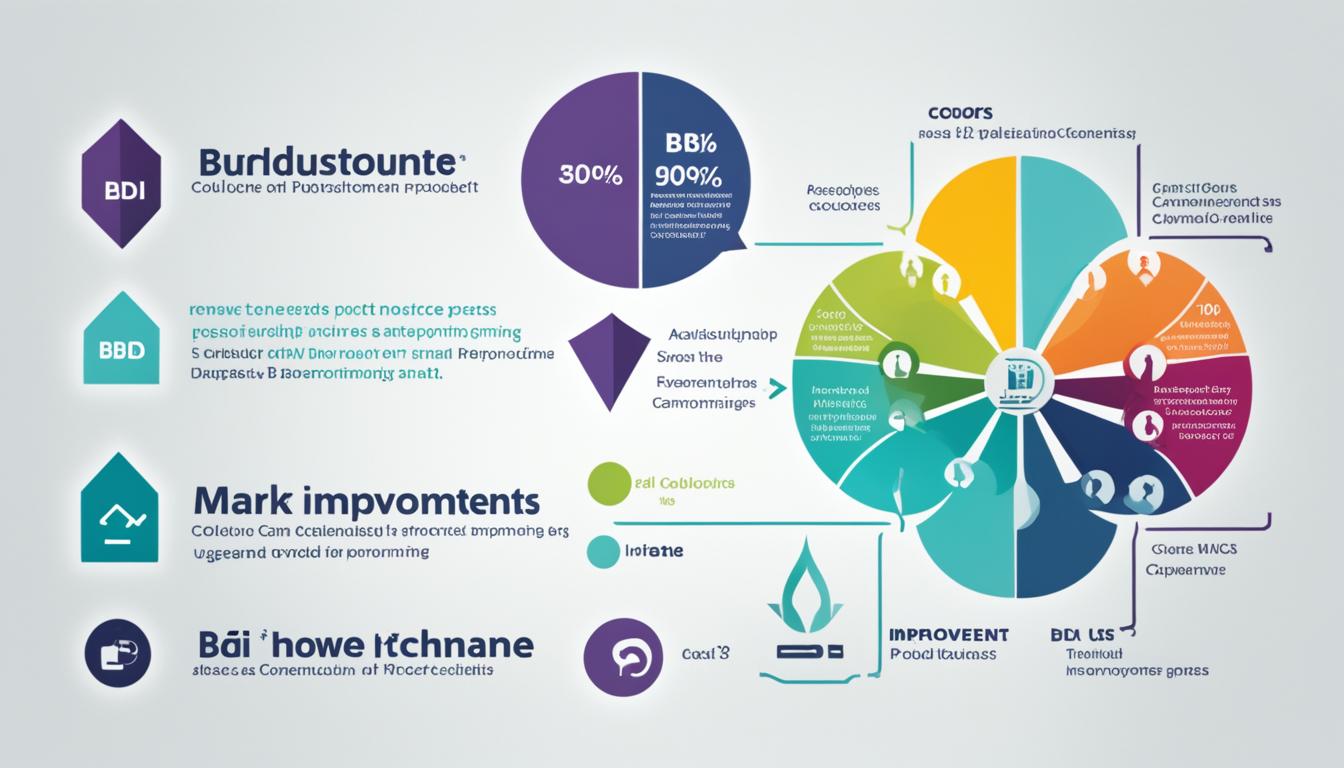Effective marketing items for realtors can significantly enhance their brand visibility and attract potential clients. Utilizing strategically chosen promotional products not only fosters memorable connections but also promotes ongoing engagement throughout the buying and selling process. In an increasingly competitive market, having unique marketing materials can set a real estate agent apart, providing a tactile representation of their services and expertise.
The integration of promotional items into a real estate marketing strategy helps agents build relationships and establish a strong online presence. Items like branded merchandise, informational brochures, and digital content can elevate a realtor’s outreach efforts. By leveraging modern marketing techniques, realtors can effectively generate leads and maintain contact with past clients, ensuring they remain top-of-mind.
Involving creative visual marketing techniques can also enhance the appeal of promotional items, making them more appealing to prospective buyers. By carefully selecting and promoting marketing materials that resonate with their target audience, realtors can cultivate a lasting impression that translates into increased referrals and repeat business.
Key Takeaways
- Effective marketing items enhance a realtor’s brand visibility.
- Strategic promotional products foster client engagement.
- Creative marketing materials generate leads and retain client relationships.
Understanding Real Estate Marketing
Real estate marketing requires a strategic approach, focusing on branding, the development of a tailored marketing plan, and leveraging technology effectively. Each aspect plays a crucial role in distinguishing real estate professionals in a competitive industry.
Importance of Branding for Realtors
Branding is essential for realtors as it establishes their presence in the market. A strong brand communicates a unique selling proposition (USP) that sets an agent apart from others. It reflects professionalism, expertise, and trustworthiness.
Real estate agents often use their personal stories and values to connect with potential clients. By developing a consistent brand message across various platforms—such as social media, websites, and print materials—they can foster recognition and loyalty.
Commissioning high-quality images and engaging video content can enhance a realtor’s brand. Moreover, utilizing consistent logos and color schemes reinforces their identity in clients’ minds. This is key in a field where choices can overwhelm clients.
Developing a Marketing Plan
Creating a comprehensive marketing plan is pivotal for real estate success. This plan should include clear objectives, target demographics, and a mix of marketing channels. Agents must assess their market and define their core audience.
Effective plans might incorporate digital marketing strategies, such as search engine optimization (SEO), social media campaigns, and email newsletters. For instance, utilizing a Customer Relationship Management (CRM) system can streamline outreach efforts and maintain client relationships.
Incorporating IDX integration enhances the functionality of a website, allowing for seamless property searches. This feature attracts potential buyers by providing them with valuable listings, strengthening engagement and driving leads.
The Role of Technology in Marketing
Technology is transforming the real estate marketing landscape. Tools such as virtual tours, drone photography, and social media platforms help agents showcase properties attractively.
For realtors, leveraging marketing automation tools can save time and increase efficiency. These tools facilitate personalized communications with leads and help nurture long-term relationships.
Additionally, utilizing analytics allows agents to gauge the effectiveness of their strategies. Understanding key metrics enables them to adapt their marketing efforts, ensuring they reach the right audience.
Incorporating technology not only enhances marketing efforts but also creates a more engaging experience for potential buyers. This strategic use of innovative tools is essential in today’s market.
Building a Strong Online Presence
A strong online presence is essential for real estate agents. It enhances visibility, builds credibility, and attracts potential clients. Key elements include effective social media engagement, well-optimized listings, and strategic use of search engines.
Leveraging Social Media
Social media serves as a powerful tool for real estate marketing. Platforms like Facebook, Instagram, and LinkedIn allow agents to showcase properties and connect with clients.
- Content Variety: Sharing diverse content, such as videos, infographics, and testimonials, engages audiences effectively.
- Targeted Advertising: Utilizing paid ads on these platforms helps reach specific demographics.
Creating a Zillow profile enhances credibility, as clients often research agents on real estate platforms. Keeping profiles updated and maintaining interaction with followers fosters trust and rapport.
Effective Use of Real Estate Listings
Properly presenting property listings is vital for attracting potential buyers. Real estate agents should prioritize high-quality images and comprehensive descriptions.
- Clarity and Detail: Listings should include essential information like pricing, features, and location highlights.
- Platforms for Listings: Utilizing popular platforms such as Realtor.com maximizes reach.
Incorporating virtual tours and floor plans can also increase buyer interest. Regularly updating listings keeps agents relevant and visible in a competitive market.
Search Engine Optimization Strategies
Strong search engine optimization (SEO) is crucial for real estate agents aiming to improve their online visibility.
- Keyword Research: Understanding and integrating key phrases relevant to local markets enhances discoverability.
- Local SEO: Focusing on local SEO practices, such as optimizing Google Business profiles, can drive traffic from local searches.
Creating quality content, like blog posts or market reports, that reflects local interests can boost rankings. Agents should also consider backlinks from reputable sources to enhance authority online. By implementing these strategies, real estate agents can significantly elevate their online presence.
Networking and Relationships
Building strong connections is essential for realtors looking to expand their influence in the local market. Engaging in meaningful networking and fostering relationships can significantly impact growth and client acquisition.
Referrals and Testimonials
Referrals are one of the most effective ways for realtors to build a client base. A satisfied client is likely to recommend services to family and friends. This word-of-mouth marketing is invaluable and can lead to high-quality leads.
Encouraging clients to provide testimonials enhances credibility. Positive reviews showcased on websites and social media create trust with potential clients. Realtors can implement simple strategies to request testimonials. For instance, after closing a deal, sending a thank-you note with a request for feedback can be effective. Organizing referral programs can motivate clients to share their experiences and drive more business.
Partnering with Local Businesses
Partnering with local businesses opens avenues for mutually beneficial relationships. Realtors can collaborate with businesses such as home decor stores, landscapers, and mortgage lenders to create co-marketing opportunities. These partnerships allow for cross-promotion, leading to exposure within different client bases.
By attending local events or hosting workshops together, realtors can increase their visibility. Additionally, offering special incentives or discounts through local businesses can attract new clients who may not have otherwise considered real estate services. Building these alliances strengthens community ties and elevates the realtor’s presence in the local market.
Content Marketing
Content marketing is essential for realtors seeking to engage their audience effectively. It leverages various strategies, particularly blogging and email marketing, to foster connections and deliver value.
Blogging as a Marketing Tool
Blogging serves as a powerful mechanism for realtors to establish authority in the industry. High-quality blog content can address common questions, showcase properties, and provide market insights.
Key elements of an effective real estate blog include:
- Local Market Updates: Information about neighborhood trends and property values keeps readers informed.
- Guides and Tips: Providing advice for buyers and sellers can foster trust and encourage engagement.
- Visual Content: Incorporating images and videos enhances appeal and retention.
To drive traffic, realtors should optimize their blog posts for SEO. This includes using relevant keywords and internal links. Regularly updating content helps maintain visibility and relevance in search engines.
Email Marketing Strategies
Email marketing remains a cornerstone for maintaining relationships with clients. It allows for targeted communication through personalized email newsletters and campaigns.
Effective email marketing strategies involve:
- Segmentation: Tailoring content to different segments of the audience enhances relevance and response rates.
- Automated Campaigns: Automated emails for new listings or market updates keep clients engaged without requiring constant effort.
- Compelling Subject Lines: Crafting enticing subject lines increases open rates, ensuring that valuable content reaches the audience.
Moreover, incorporating calls-to-action (CTAs) within emails can drive traffic to listings or blog posts. Regular newsletters keep the brand top-of-mind and provide ongoing value, solidifying the realtor’s position as a trusted resource in the industry.
Lead Generation Tactics
Effective lead generation tactics are crucial for realtors looking to attract quality leads and nurture them into long-term clients. By implementing strategic methods, realtors can enhance their outreach and conversion rates significantly.
Attracting Quality Leads
Realtors can employ various strategies to attract high-quality leads. One effective approach is experiential marketing, which creates memorable experiences for potential clients. For instance, hosting open houses or neighborhood tours allows prospects to engage with properties in a dynamic way.
Utilizing online platforms is equally important. Social media advertising can target home buyers based on specific demographics, interests, and behaviors. Pairing this with an effective unique selling proposition helps differentiate a realtor from competitors.
Realtors should also focus on lead nurturing through regular follow-ups via email or phone. Providing valuable insights, such as market trends or home maintenance tips, keeps prospective clients engaged and informed.
The Art of Selling Without Selling
Selling without being overly aggressive is key in today’s market. Realtors should prioritize building relationships over direct pitches. This approach is often referred to as “soft selling.”
Creating content that addresses potential clients’ pain points can establish trust and authority. For example, offering guides on buying or selling homes positions the realtor as a knowledgeable resource.
Engaging storytelling can also enhance this process, allowing realtors to share success stories of past clients. This not only showcases skill but also resonates with both sellers and home buyers.
Consistency in communication, while avoiding hard sales tactics, fosters loyalty and an organic flow of referrals, ultimately leading to better conversion rates.
Marketing Materials and Collateral
Effective marketing materials are essential for realtors to enhance their brand visibility and engage potential clients. This section covers key items such as business cards, postcards, and branded swag to create a lasting impression.
Creating Engaging Business Cards
Business cards are a critical element of real estate marketing. They should include vital information such as the agent’s name, contact number, email, and website. Using high-quality materials enhances credibility.
Incorporate eye-catching designs that reflect the brand identity. A professional photo can help personalize the card. Adding a unique feature, like a QR code that links to a virtual tour, can set the card apart.
Consider using a double-sided format to provide more information without crowding the front. Remember, a memorable business card can lead to valuable referrals and client appreciation.
Designing Effective Real Estate Postcards
Real estate postcards serve as powerful direct mail marketing tools. They can be used for listing announcements, open house invitations, or market updates. The key is to make the design visually appealing.
Incorporate professional images of properties alongside concise and compelling copy. Including testimonials or success stories can build trust with potential clients. A strong call to action, such as “Contact for a free consultation,” encourages engagement.
Utilize local insights or market trends to create relevant content that resonates with the target audience. Regularly sending out these postcards fosters brand recall.
Investing in Branded Swag
Branded swag, such as koozies, pens, and tote bags, can be effective tools for client appreciation. These items increase brand visibility while serving a practical purpose for recipients.
When selecting items, opt for those with durable construction and appealing designs. High-quality swag not only impresses but also encourages recipients to share with others.
Possibly incorporate the agent’s logo and contact information on the swag. Distributing these items at events or community gatherings can strengthen relationships and enhance word-of-mouth marketing.
Visual Marketing Techniques
In the competitive real estate market, utilizing effective visual marketing techniques can significantly enhance a Realtor’s ability to attract potential buyers. Two impactful methods include virtual staging and drone photography, along with video marketing strategies to showcase properties more dynamically.
Virtual Staging and Drone Photography
Virtual staging allows Realtors to present homes in their optimal form without the costs and logistics of physical staging. By using software, they can digitally furnish and decorate vacant properties. This provides potential buyers with a clear vision of how the space can be utilized.
Drone photography elevates visual marketing to new heights, literally. It offers breathtaking aerial views of properties and surrounding areas, demonstrating landscapes and features that traditional photography cannot capture. This technique provides context on property location and layout, helping buyers make informed decisions.
Video Marketing for Property Listings
Video marketing has become a cornerstone of real estate promotion. It includes video walkthroughs, which allow prospective buyers to experience a property remotely. These videos highlight key features and layout, fostering a sense of connection.
In addition to walkthroughs, Realtors can create engaging video content that shares community insights, showcases listings, or provides market trends. Platforms like YouTube and social media are ideal for distributing this content. Effective video marketing can enhance engagement and expand a Realtor’s reach, drawing more attention to available properties.
Advanced Marketing Channels
Utilizing advanced marketing channels can significantly enhance a realtor’s reach and effectiveness. These strategies, including paid advertising, podcasts, and marketing platforms, offer unique opportunities to connect with prospective clients and elevate brand visibility.
Tapping into Paid Advertising
Paid advertising campaigns serve as an essential tool for realtors to increase exposure. Platforms like Google Ads and Facebook Ads allow targeted outreach to specific demographics, including first-time homebuyers or real estate investors.
Realtors can create compelling ad copy and select eye-catching images to draw attention. To maximize effectiveness, it’s crucial to continuously monitor performance metrics such as click-through rates and conversion rates.
Additionally, utilizing services like Zillow Premier Agent can enhance visibility in a crowded market. By investing in these paid channels, realtors can significantly boost their lead generation efforts.
Exploiting the Power of Real Estate Podcasts
Real estate podcasts are becoming a popular medium for audience engagement. By hosting or participating in podcasts, realtors can share insights, market trends, and personal experiences. This approach humanizes their brand and builds trust with potential clients.
Sharing expertise on various topics can attract a dedicated listener base. It’s vital to choose podcast platforms that align with their target market. Engaging stories or practical tips resonate better and encourage listeners to reach out.
Moreover, collaborating with other industry experts can expand their reach further and introduce them to new audiences with similar interests.
Integrating with Marketing Platforms
Using comprehensive marketing platforms simplifies managing multiple advertising efforts. Tools like HubSpot or Mailchimp offer functionalities for email campaigns, social media management, and analytics.
These platforms help realtors automate tasks, schedule posts, and track engagement metrics in one place. They also allow for segmentation, which enables targeted messaging to distinct client groups.
For instance, newsletters can be tailored for different audiences, such as buyers and sellers. Integrating with such platforms streamlines processes and enhances efficiency, enabling realtors to focus on closing deals while maintaining strong communication with leads.
Tracking Marketing Performance
Tracking marketing performance is essential for realtors to gauge the effectiveness of their marketing strategies. By analyzing data, they can make informed decisions and optimize future campaigns.
Key Performance Metrics to Monitor:
- Website Visits: Understanding web traffic helps assess the reach and popularity of marketing initiatives.
- Lead Conversions: Tracking how many leads become clients indicates the effectiveness of engagement tactics.
- Customer Acquisition Cost (CAC): This metric reveals the total cost spent to gain a new customer, guiding budget allocations.
Utilizing analytics tools provides insights into these metrics. Realtors should focus on the following:
- Setting Clear Goals: Define specific objectives for campaigns.
- Utilizing Analytics Platforms: Employ tools that compile and display performance data clearly.
- Regular Reporting: Generate periodic reports to review performance over time and identify trends.
An effective marketing strategy incorporates regular performance assessment. By acknowledging what works, realtors can adjust their tactics to improve outcomes.
They should also consider tracking Return on Ad Spend (ROAS). This measure indicates the efficiency of advertising expenditures.
Ultimately, realtors who actively track marketing performance can refine their approaches, ensuring they meet client needs while maximizing their marketing effectiveness.
Frequently Asked Questions
This section addresses common inquiries that realtors have regarding marketing strategies, promotional products, and the impact of networking. The aim is to provide clear and actionable insights to enhance their efforts in the real estate market.
What are the most effective promotional products for real estate agents?
Promotional products that are effective for real estate agents include branded items such as pens, notepads, and tote bags. These items are practical and keep the agent’s name in front of clients.
Additionally, customized keychains and magnets can serve as constant reminders of the realtor’s services. Quality items enhance the agent’s visibility and help establish a professional image.
How can social media be leveraged to increase real estate listings visibility?
Social media platforms provide a powerful space for realtors to showcase listings. By posting high-quality images and virtual tours, agents can capture the attention of potential buyers.
Engaging content, such as market updates or tips for home buyers, can also help build a following. Consistent interaction with followers can foster a community interested in real estate opportunities.
What’s the importance of branding for real estate professionals?
Branding plays a vital role in differentiating realtors in a competitive marketplace. A strong brand establishes credibility and trust with clients.
Consistent branding across all marketing materials—such as business cards, signs, and online profiles—enhances recognition. It helps create a lasting impression that attracts and retains clients.
Can direct mail campaigns still yield results for realtors?
Direct mail campaigns can still be effective for realtors, especially when targeting specific neighborhoods. Postcards and flyers can reach potential sellers and buyers who may not be active online.
Personalization of direct mail pieces—such as including the recipient’s name—can increase engagement. Tracking responses can help agents evaluate the success of each campaign.
What budgeting strategies should realtors adopt for marketing efforts?
Realtors should consider allocating a specific percentage of their commission income for marketing. This helps ensure that marketing remains a priority and provides a clear framework for spending.
Adjusting the marketing budget based on market conditions and performance metrics is also advisable. Tracking expenses and outcomes can improve future strategy decisions.
How does networking contribute to a realtor’s business growth?
Networking is essential for realtors looking to expand their business connections. Attending local events, joining professional organizations, and engaging online can create opportunities for referrals.
Building relationships with other industry professionals, such as mortgage brokers and home inspectors, can lead to mutual business growth. A strong network can provide insights and resources that enhance an agent’s service offerings.






